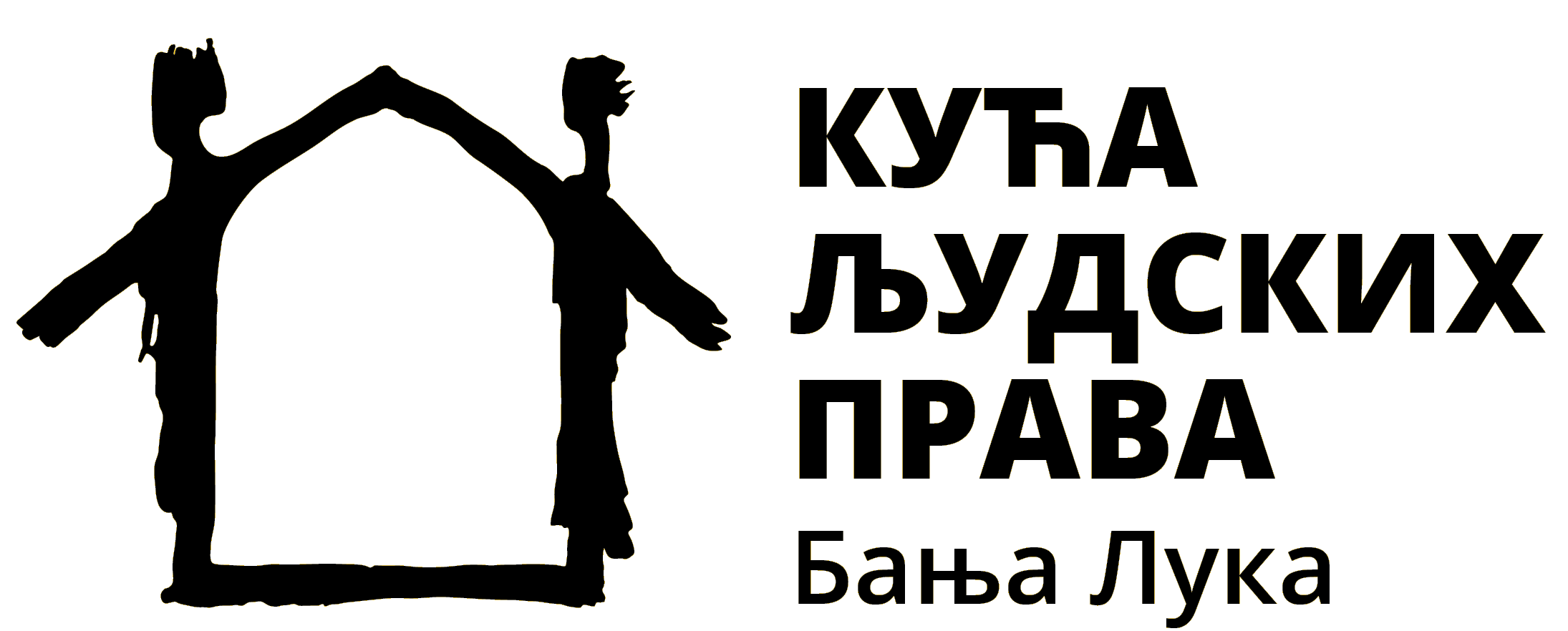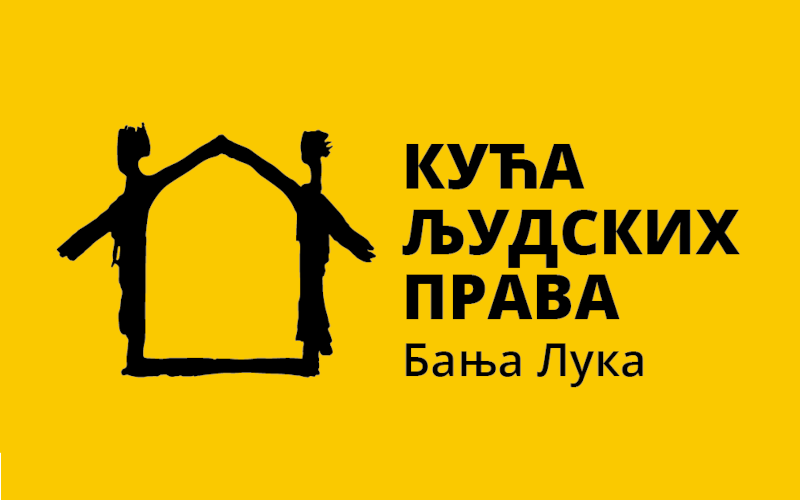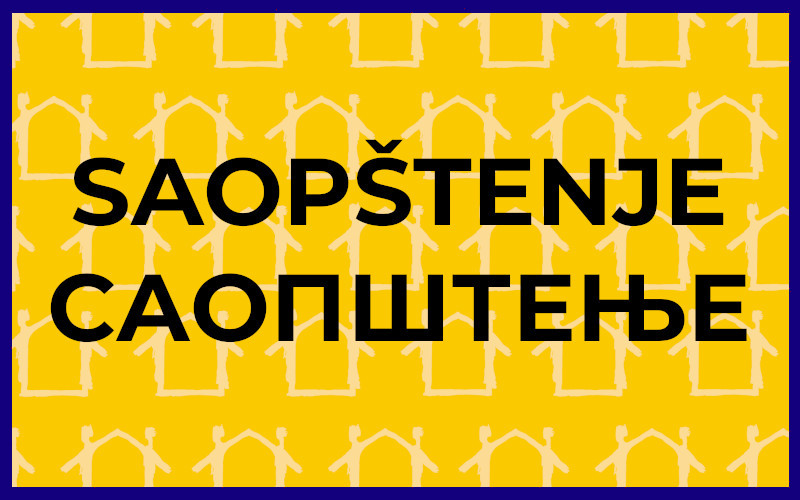Passing a law is not a simple process and sometimes all its stages seem quite complicated. This is especially the case in Bosnia and Herzegovina (BiH) where, due to the federal structure, there is also a different parliamentary practice.
In this text, I will try to bring the law-making process closer to you in the simplest possible way. However, it is very important to note that this is not a presentation of the entire law-making process and that for specifics and special issues, such as the vital national interests of the constituent peoples or the procedure in the House of Peoples, it is best to consult the direct legal documents listed at the end of the text.
More parliaments – different organization
When it comes to the passing of laws in BiH, it is necessary to know that due to the specific state structure in BiH there are several parliaments that pass laws at different levels: state, entity and cantonal levels, as well as at the Brčko District level.
The law-making process is not identical in each of these authorities, so I will focus on entity and state parliaments, which have somewhat similar basic procedures.
At the level of BiH, there is the Parliamentary Assembly of BiH (PABiH). It is a bicameral body, consisting of the House of Representatives and the House of Peoples.
At the level of Republic of Srpska (RS), there is a National Assembly (NARS), which is a unicameral legislative body. In the law-making process, the House of Peoples is also important, which is a sui generis political legislative authority that deals with issues of vital national interests of the constituent peoples.
At the level of the Federation of BiH, there is a bicameral Parliament of the Federation of BiH (PFBiH), consisting of the House of Representatives and the House of Peoples.
Legal sources
When passing laws, it is very important to know where the legal basis for their passing comes from. The legal basis is found in the constitutions that exist in BiH (Constitution of BiH, Constitution of RS, Constitution of FBiH). In the constitutions, parliaments are empowered to pass laws. This specifically means that parliaments cannot pass laws for which they are not competent, which in practice can create certain problems. Therefore, NARS cannot pass e.g. the Criminal Code, which will determine criminal offenses under the jurisdiction of the FBiH, nor the PFBiH can do that for the RS.
In addition to the constitution, the rules of procedure of the parliaments are also very important for the law-making process, in which the parliamentary procedure for passing laws is described in detail. No less important are the rules of nomotechnics, i.e. the rules for creating legal regulations that determine how the law is technically written, what its structure is, what an article, paragraph, indent, etc. are.
Other regulations are also important, such as e.g. Law on Referendum and Citizen Initiative of RS.
Also, it is important to note that when mentioning the adoption of a certain law in e.g. to the text on the portal, always indicate whether it refers to BiH, RS or FBiH, so that there is no confusion. A good example of possible confusion are the laws on contributions that exist under that name in RS and FBiH, although they differ in content.
Who prepares, initiates and proposes laws anyway?
Passing a law is a process that goes through several stages. Thus, in the legislative path, which is “complex and stepwise”, a law can pass through:
1. Possible legal initiative;
2. Proposing laws;
3. Work in parliamentary bodies;
4. First “reading of the law”;
5. New work in parliamentary bodies;
6. Second “reading of the law” and its possible adoption.
The law-making process in a broader sense begins with the drafting of a law and its submission to the competent parliament.
In this respect, they can generally be distinguished:
1. initiating the adoption of laws and
2. proposing laws.
The initiative for the adoption of laws represents a path through which primarily citizens and their organizations can initiate the adoption of new or amendment of existing laws. The initiative is based on the entities that have an active identification, set wider than the right to propose laws, and it is a type of exercise of the right of citizens to address the authorities.
Proposing laws represents the authorization of strictly defined entities within the system of government and in the case of the RS and a certain number of voters in connection with the adoption of new or amendment of existing laws.
The process of drafting the laws depends on who will submit the law to the parliament. Depending on the parliament, the initiators and proponents of passing laws are different.
Initiative for the adoption of laws
When it comes to the initiative for the adoption of laws, there is a varied situation in different parliaments in BiH.
At the level of PABiH, citizens can submit an initiative for changes and/or amendments to the law to authorized proponents.
The initiative for the adoption of laws in NARS can be given by: assemblies of municipalities and cities, business companies, political and other organizations, associations and citizens. The initiative is submitted to the president of the NARS, who submits it to the competent working body, the Legislative Committee and the Government of the RS, in order to submit an opinion on the particular initiative.
The initiative for the adoption of laws in the FBiH can be initiated in the House of Representatives of the PFBiH cantonal assembly, city and municipal councils, as well as citizens, companies and other legal entities. In the House of Peoples, authorized actors are business companies, chambers of commerce and other general associations and communities, political organizations, associations of citizens and citizens. This kind of inconsistency regarding the right to submit an initiative for the adoption of laws in different houses of the PFBiH is unacceptable, but unfortunately it is also the reality of the functioning of the domestic legal system. The initiative for the adoption of laws is submitted to the chairman of one of the houses, who submits it to the competent working bodies for opinion.
Proposing laws
In the PABiH, proposal of the law can be submitted by any delegate, committees of houses, joint committees of both houses, houses, the Presidency and the Council of Ministers, within the scope of their competences. At the state level, members of parliament propose more laws than the Council of Ministers. In the period from 2018 to 2022, out of the total number of adopted laws, delegates proposed five, the Presidency three and the Council of Ministers 12. Of the total number of rejected proposals of the laws, delegates proposed 34, the Council of Ministers 10 proposals of the laws, while proponents of the eight withdrawn proposals of the laws were delegates. Also, delegates proposed 15, and the Council of Ministers proposed two proposals of the laws for which the law-making procedure was suspended.
In NARS, the President, the Government, each delegate or at least 3,000 voters have the right to propose laws. In practice, laws are generally proposed by the Government of RS. Thus, in the period from 2018 to 2021, the number of laws proposed at regular sessions of the NARS amounted to 115 proposed laws, i.e. 87 draft laws. All laws were proposed by the Government of the RS, with the exception of five laws proposed by one club and delegates.
Drafts and proposals of the laws in the PFBiH can be submitted by the Government/Prime Minister, members of parliament, clubs and working bodies of the house or the house. In the House of Peoples, draft laws can be submitted by the president and vice-presidents of FBiH, cantonal assemblies and city and municipal councils. In practice, laws are generally proposed by the Government of the FBiH. From 2018 to 2022, 64 laws were proposed, of which 50 were adopted.
Therefore, governments/Council of Ministers can propose a law but not pass it. Laws are adopted by parliaments. Thus, the Government of the RS in the exercise of its executive power proposes laws to NARS, gives an opinion on the draft law and on the initiative for the adoption of laws in the NARS, ensures the implementation and execution of laws, but it does not pass laws, and it cannot be said that “the Government passed a law”, but that the Government e.g. gave an opinion on a proposed law or determined a draft law.
What happens when the law enters parliament?
In our country, laws are passed in two so-called “readings”, and there are two main stages in the adoption of the law. Before PABiH it is the first and second reading of proposal of the law, in NARS and PFBiH it is the phase of the draft law (examination of the draft law, debate on the draft) and the phase of proposal of the law (examination of proposal of the law, debate on the proposal).
However, between these two main phases, there are also “intermediate phases” that take place in front of special parliamentary bodies, in order for legislative activity to be conducted as efficiently and qualitatively as possible.
The formal procedure for passing a law is initiated by submitting a draft law to the NARS and PFBiH, that is, a draft law to the PABiH. A draft/proposal of the law must contain exactly certain elements in order to be accepted as such. Some of these elements are the text of the law, the constitutional basis for passing the law, the explanation of the proposed legal solutions, etc.
Parliamentary bodies vol. 1
When the legal proposal (draft) reaches the parliament, it is necessary to review it by certain bodies in the parliament, so that it can be sent to the people’s representatives.
In PABiH, proposal of the law is submitted to the Constitutional-Legal Committee, which determines whether proposal of the law is compatible with the Constitution of BiH and the legal system of BiH, and to the competent committee, which considers the principles on which proposal of the law is based, in order to give an opinion on proposal of the law.
In NARS, the draft law is discussed by the Legislative Committee and the working body which scope is the issue regulated by law. The draft law can also be discussed by other working bodies if it includes certain issues that are within the scope of those working bodies. Reports of the Legislative Committee and working bodies are submitted to NARS.
When it comes to the PFBiH, before the hearing of the draft law on the session in one of the houses, the draft law is discussed by the Legislative-Legal Committee of the house and the competent working body which submit a report on it to the house.
The first “reading” of the law
After the committee’s review of the law, proposal of the law is submitted to delegates in PABiH. The general discussion in one of the houses begins with the first reading, which concerns the principles on which proposal of the law is based, the content of the law and the necessity of passing the law, according to the opinion of the Constitutional-Legal and competent committee from the first phase. The discussion in the first reading ends with the approval or rejection of proposal of the law.
Discussing the draft law at the session of NARS includes a unique discussion on the constitutional basis for the adoption of the law, on compliance with the regulations of the European Union, the reasons for the adoption of the law, the consequences that will arise for the material and other position of citizens, companies and other organizations and communities, on assessment and sources of necessary funds for the implementation of the law and on the text of the draft law. After the final discussion, NARS declares on the draft on the day of voting.
As a rule, the examination of the draft law at the sessions of the Houses of the PFBiH is unique. The House of the PFBiH can decide that the examination of the draft law includes a general examination and a detailed examination. In the general examination, delegates present their opinions on whether it is necessary to pass a law, on the principles on which the law should be based and whether these principles have been consistently implemented in the draft, as well as on the necessary financial resources and their sources. In a detailed examination, individual solutions in the draft are discussed. After the conclusion of the examination, the house before which the examination was held concludes that it accepts the draft law and that the draft can serve as a basis for the drafting of proposal of the law. However, if one of the houses considers that it is not necessary to pass the law, it rejects the draft by conclusion.
Public and expert discussions
Before proposal of the law enters the second committee’s phase in PABiH, competent committees may decide to open a public discussion on the proposed law in which interested bodies, professional institutions and individuals would participate. Invited organizations, institutions and individuals present their opinions on issues related to the proposed law. The committee, along with the report it submits, also attaches the transcript of the public discussion, if any, as well as the papers and materials submitted during the public discussion.
After the adoption of the draft law, NARS may decide to put the draft up for public discussion if the law regulates issues of particular importance to citizens and if it is necessary to consult authorities, organizations, scientific and professional institutions and interested citizens. Also, NARS can order the competent working body to organize an expert discussion on the draft law. The report on the results of the public discussion is submitted to the NARS together with proposal of the law.
When the houses of the PFBiH accept the draft law, or when the work program of the House of Peoples prescribes, the houses can decide to put the draft law or an individual question from the draft law to a public discussion in order to carry out the widest discussion of interested authorities, scientific and professional institutions and citizens. The House of Representatives can make this decision on the initiative of the authorized proponent of the law or clubs of delegates, and the House of Peoples can make this decision on the initiative of the authorized proponent of the law or clubs of Bosniak, Croat and Serb delegates. The working body submits a report to the House on the results of the public discussion on the draft law.
Parliamentary bodies vol. 2
After the first “reading”, the adopted proposal of the law comes before the competent committee in PABiH. A delegate, a club of delegates/people, a non-competent committee, the proponent of the law and the Council of Ministers of BiH can submit amendments, as well as members of the competent committee. The procedure in the committee starts with the discussion on proposal of the law and the submitted amendments, and after the discussion, the committee votes on the proposed amendments. In the end, it is obliged to submit a report to the house, which the chairman of the committee or another appointed reporter submits at the session of the house.
The adopted draft law in the NARS comes again before the working bodies, which now have the right to propose and adopt amendments to the acts proposed for consideration in the NARS.
The draft law in the PFBiH is previously considered by the Legislative-Legal Committee and the competent working body in the House of Peoples, that is, the competent working body of the House of Representatives.
Second “reading” of the law
When the house in PABiH receives the report of the competent committee on the text of proposal of the law, it starts the discussion on the text of proposal of the law and on the submitted amendments, if the report of the committee is positive. If the report of the committee is negative, the house proceeds to discussion on the report of the committee. If the house accepts the negative report of the committee, proposal of the law is considered rejected. If the house rejects the negative report of the committee, proposal of the law is returned to the competent committee for consideration.
When the house accepts the text of proposal of the law, it is considered adopted, and the procedure is repeated in the second house. Proposal of the law is considered adopted when both houses of the PABiH adopt it in an identical text.
When it comes to the NARS, the text of proposal of the law is discussed at the session of the NARS. After the discussion of proposal of the law, NARS decides on the submitted amendments on the voting day, and then on proposal of the law as a whole.
Proposals for amendments and supplements to proposal of the law – amendments can be submitted by authorized proponents of the law and working bodies of the NARS. The amendment adopted at the session of NARS becomes an integral part of proposal of the law.
During the examination of proposal of the law in the PFBiH, it is discussed whether the proposal was prepared in accordance with the conclusion adopted during the discussion on the draft law. During the examination, opinions can be expressed, explanations can be sought and other issues in connection with the solutions provided in proposal of the law can be initiated. During the examination, individual solutions to the proposal are discussed in detail and amendments are decided upon. The laws were passed when they were adopted in both houses of the PFBiH in the same text. Every authorized proponent of the law has the right to submit an amendment, and the adopted amendment is considered an integral part of proposal of the law.
Abbreviated and urgent procedures for passing laws
When proposal of the law is submitted to the PABiH, the proponent can request that proposal of the law be considered by an abbreviated procedure, in which all deadlines from the regular law-making procedure are cut in half. In addition, the proponent can ask the house that proposal of the law of high urgency or that is formulated in such a simple way that it can be adopted or rejected entirely consider in the reading.
In exceptional cases in the NARS, a law can be passed by urgent procedure. According to this procedure, only a law can be passed that regulates issues and relations that arose as a result of circumstances that could not be foreseen, and the failure to pass a law under an urgent procedure could cause harmful consequences for people’s lives and health, the security of the RS and the work of authorities and organizations and if it is in the general interest. According to the urgent procedure, a law may be adopted for which the Constitutional Court of the RS has determined its incompatibility with the Constitution.
In the FBiH, as a rule, laws cannot be passed by urgent procedure. By the urgent procedure, only a law regulating relations and issues for which there is an urgent need to be regulated can be adopted and if the adoption of the law in the regular procedure could cause harmful consequences for the FBiH. A proposal to pass a law under an urgent procedure can be submitted by an authorized proponent of a law. When it is prescribed in the work program of the House of Peoples of the PFBiH or when it is not a complex and extensive law, the proponent of proposal of the law can submit a proposal of the law instead of a draft and propose that proposal of the law be considered inan abbreviated procedure without a draft law.
Promulgation of laws
The President of the NARS shall submit the law to the House of Peoples within seven days of its adoption, and upon receiving notification from the House of Peoples, it shall submit the law to the President of the RS for promulgation. If the President of the RS demands that the NARS vote again on the law, that law is placed on the agenda of the next session of the NARS. The re-voted law is submitted to the President of the RS for promulgation.
The President of the FBiH is responsible for signing the decisions of the PFBiH after their adoption, and accordingly promulgates the laws passed by the houses of the PFBiH.
Entry into force of law (vacatio legis)
At the level of BiH, the regulation enters into force after the expiration of a certain period after publication in the Official Gazette of BiH, and must be marked as such. In the case of law, it is a period of eight days, but never before one day from the day of publication.
In the Republic of Srpska, laws enter into force on the eighth day at the earliest from the date of their publication in the Official Gazette of the RS, unless, for particularly justified reasons, they are not prescribed to enter into force earlier.
In the Federation of BiH, laws enter into force as stipulated in them, but not earlier than they are published in the official gazette of the FBiH.
Important legal documents:
Rules of Procedure of the House of Representatives of the Parliamentary Assembly of BiH
Rules of Procedure of the House of Peoples of the Parliamentary Assembly of BiH
Unified Rules for Legislative Drafting in the Institutions of BiH
Rules of Procedure of the National Assembly of the Republic of Srpska
Rules of Procedure of the House of Peoples of the Republic of Srpska
Rules for Drafting Laws and other Regulations of the Republic of Srpska
Rules of Procedure of the House of Representatives of the Parliament of the Federation of BiH
Rules of Procedure of the House of Peoples of the Parliament of the Federation of BiH
Rules and Procedures for Drafting Laws and other Regulations of the Federation of BiH
Cover photo: Man in Blach Suit Jacket Siting on Chair, [Author: Pavel Danilyuk, photo downloaded from: Pexels]
The text was downloaded from the website of Media Center on the following address: https://www.media.ba/bs/preporuke/vodic-za-medije-kako-tece-postupak-za-donosenje-zakona



